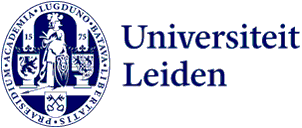982 search results for “make” in the Student website
-
Leiden Reflections: Art, Creativity and AI
Alumni event, Lezing
-
Transformational leadership: Capacity Building for Equitable and Sustainable Change
Study support
-
Consent panel discussion - Join the conversation
Debate
-
The Knowledge Orchard: day on inter- and transdisciplinary collaboration Leiden University
Conference
-
Qualitative Empirical Research Methods in Law | Introductory Course for PPP-students
Research
- Come visit the Honours Conference!
-
Neutrino: Documentary & Q&A with the directors
Studium Generale
-
Mentor Network live: alumni speed dating
Career and apply for jobs
-
Plastic's Legacy: From Single-Use to Sustainable Solutions
Lecture, Studium Generale
-
Daily Dutch (POPcorner FSW)
Study support
-
Money Matters: Financial Distress and Sustainable Change
Panel Discussion
-
Meet the Employer
Career and apply for jobs
-
Untold Stories: representation, heritage and museums
Conference, D&I Symposium
-
Civility, not opinions, was the real surprise in student debate
The student debate in Leiden’s Stadsgehoorzaal promised to be ‘the key to your vote’. That may sound hyperbolic, but what this well-attended debate did achieve was increased trust in politics. ‘They even let each other finish their sentences’, the flabbergasted students concluded at the end.
-
Farewell to Martijn Ridderbos: ‘We can’t do it alone’
In his leaving interview, Martijn Ridderbos doesn’t have to think long when asked what he is most proud of. ‘Bringing people together; creating things together. Reducing the gap between researchers and the staff who support them because the latter are essential. We’ve achieved that and the seeds have…
-
Opening of the Academic Year: ‘Take care of each other’
After a turbulent Covid year, the well-being of our students and staff has the highest priority. How can we prevent physical and mental health problems? This was the key question at the Opening of the Academic Year in Pieterskerk in Leiden on 6 September.
-
D&I Symposium 2024: What have we achieved with a decade of diversity policy?
How has progress been made on diversity and inclusion at Leiden University over the past decade? Attendees reflected on this at the D&I Symposium 2024: Untold Stories. And in the workshops, students and staff discussed the next steps toward a more inclusive community.
-
Opening of the Academic Year: 'Relentlessly follow your curiosity and see where it takes you'
The opening of the new academic year highlighted students' and lecturers' personal motivators. Incoming students were encouraged to be bold, forge their own paths and grow by trial and error.
-
Belonging first: in conversation about an accessible university
D&I Event
-
Career College: To PhD or not to PhD?
Career and apply for jobs
-
Visiting the EU institutions in Brussels
Career and apply for jobs
-
Thesis group Leiden
Study support, Study support
-
International Criminal Justice: Utopia or Reality?
Lecture, 5th Owada Chair Symposium
-
Navigating the Unpredictable: Climate Chaos and the Future of Water
Lecture, Studium Generale
- Leiden Teachers' Academy Education Festival 2023
-
Meet the Employer
Career and apply for jobs
-
Innovating and connecting
447th Dies Natalis
-
8-11 April - Career Days 2024
Course, Career Week
-
Diversity & Inclusion Career Session
Course
-
Global Transformations and Governance Challenges (GTGC) Conference 2023
Conference
-
Student Well-being Week: Spring into action!
Wellbeing
-
Dies Natalis
University ceremony
